For cold process soap making, you'll find three reliable traditional thermometers: classic mercury glass thermometers (100°F-400°F range), durable bi-metal dial thermometers (0°F-220°F range), and alcohol-filled vintage laboratory thermometers. Mercury options offer precision but are fragile, bi-metal dials provide durability and easy reading, while alcohol-filled alternatives balance nostalgia with functionality. Each option honors traditional craftsmanship while ensuring you accurately monitor those essential oil and lye temperatures. Let's explore these classic tools further.
Classic Mercury Glass Thermometers: The Original Soap Making Standard
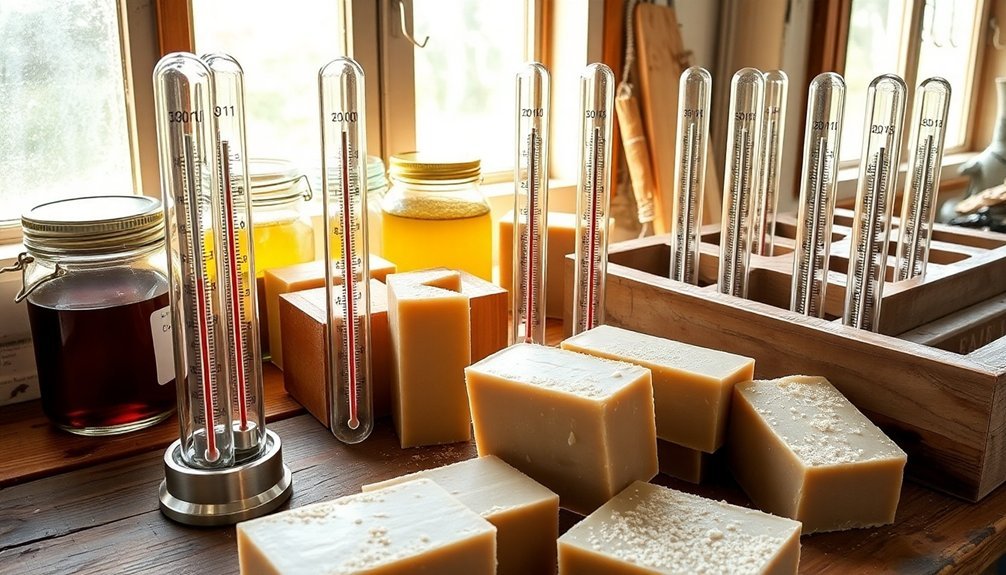
The time-honored mercury glass thermometer has served as the cornerstone of soap making temperature monitoring for generations.
With a temperature range typically spanning 100°F to 400°F, these classic mercury glass thermometers allow you to observe critical soap-making temperatures through their clear glass tubes.
You'll appreciate the straightforward analog display for tracking both oil and lye solution temperatures, though reading it accurately requires practice for proper temperature management.
While they've proven reliable over decades, be aware they're notoriously fragile and can break easily, creating potential safety risks in your workspace.
Many soap makers now opt for more durable alternatives like digital thermometers, which offer improved safety and ease of use.
Still, if you value tradition and visual simplicity, these original tools remain a functional option for your cold process soap making.
Bi-Metal Dial Thermometers for Traditional Craftsmen
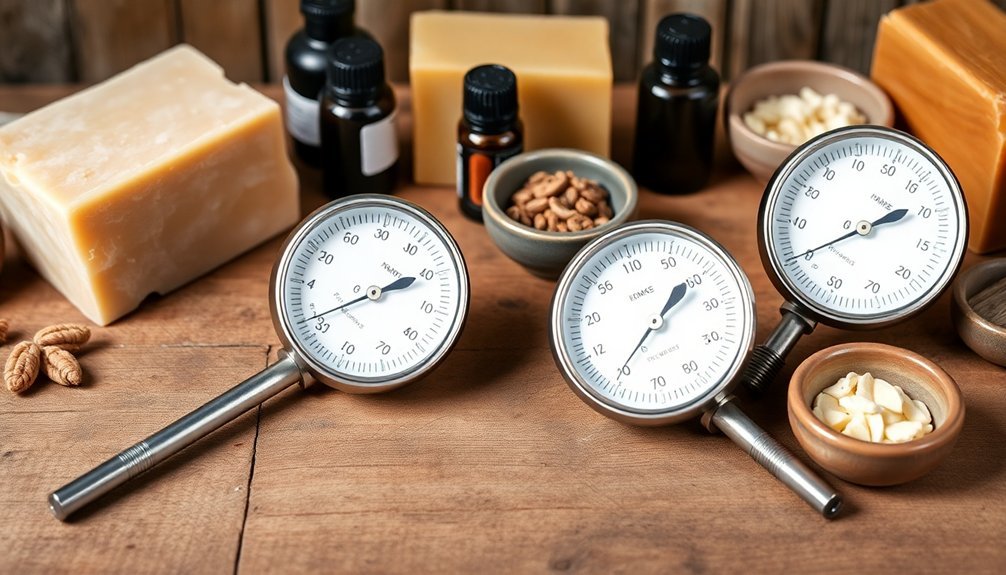
Three key qualities make bi-metal dial thermometers a favorite among traditional soap artisans: durability, readability, and reliability.
You'll appreciate how these sturdy instruments withstand the heat and moisture typical in cold process soap production without compromising accuracy.
The large, easy-to-read dial allows you to quickly check lye and oil temperatures during critical mixing phases.
With a temperature range typically spanning from 0°F to 220°F, you'll have no trouble monitoring temperatures throughout your soap-making process.
You'll find the simple design offers practical advantages beyond function—easy cleaning guarantees your thermometer remains in top condition for years.
For traditional soap makers seeking a balance of craftsmanship and practicality, these cost-effective solutions deliver professional results without breaking your budget.
Alcohol-Filled Vintage Laboratory Thermometers in Soap Making
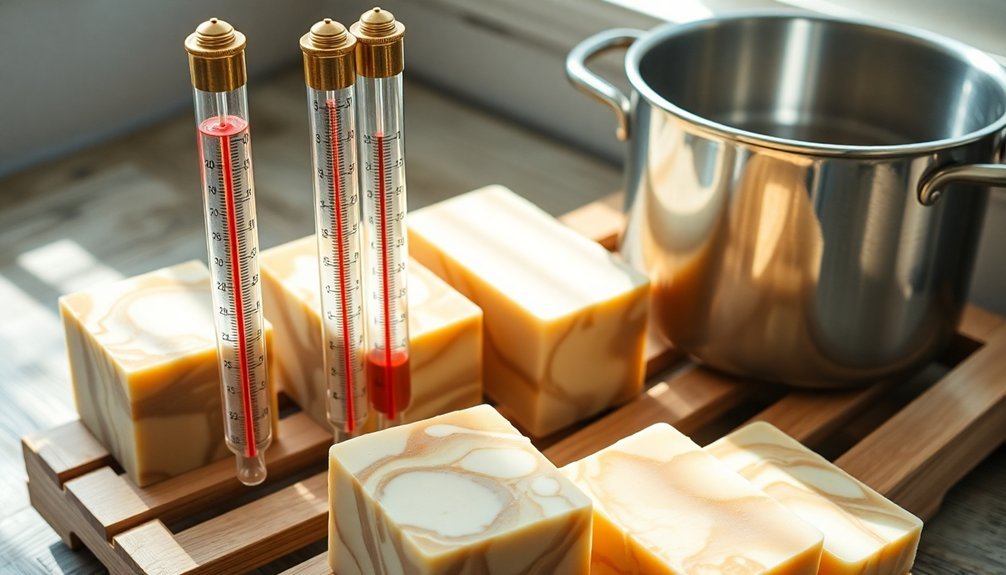
Many artisanal soap makers gravitate toward alcohol-filled vintage laboratory thermometers for their classic appeal and practical functionality.
These instruments accurately measure temperatures between 0°F and 220°F, perfect for monitoring lye and oil temperatures in cold process soap making.
You'll appreciate the glass tube design that offers clear temperature readings, essential for maintaining consistency in soap batter.
The alcohol filling provides a lower freezing point, making these thermometers versatile in various environments.
Most come with a sturdy stand or clip for hands-free monitoring temperatures while you work with other ingredients.
However, they're less durable than digital alternatives, so careful handling is necessary to prevent breakage during your soap crafting process.
These traditional tools blend nostalgia with practicality for soap makers who value heritage craftsmanship.
Frequently Asked Questions
Which Thermometer Is Best for Soap Making?
You'll find digital thermometers like ThermoPro TP03 ideal for soap making, offering quick, accurate readings. For monitoring hot liquids without contact, an infrared thermometer is your best choice. Both work well for consistent temperature management.
What Is the Best Temperature for Cold Process Soap?
You'll want to aim for both your lye solution and oils to be around 100°F (38°C) when combining them. Some soapers prefer cooler temperatures (70-75°F) for better control over the saponification process.
Are Traditional Thermometers Accurate?
Yes, traditional thermometers can be accurate when properly calibrated and used correctly. You'll get reliable readings within a few degrees, though they require more practice to master than digital options.
Do You Need a Thermometer for Melt and Pour Soap?
While not strictly necessary, you'll benefit from using a thermometer for melt and pour soap. It helps you maintain the ideal 130-140°F temperature, preventing scorching and ensuring fragrances retain their scent when added.
In Summary
While modern digital options offer convenience, you'll find there's something special about these traditional thermometers in your soap making journey. Whether you choose the precision of mercury glass, the easy reading of bi-metal dials, or the charm of alcohol-filled lab thermometers, these time-tested tools connect you to soap making's rich heritage. They'll provide reliable temperature readings without batteries or programming—just pure, hands-on craftsmanship.
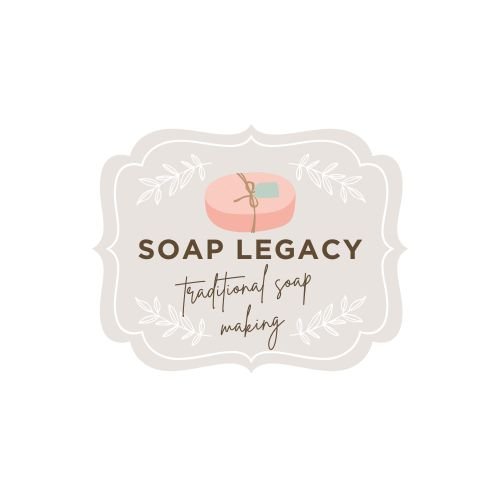
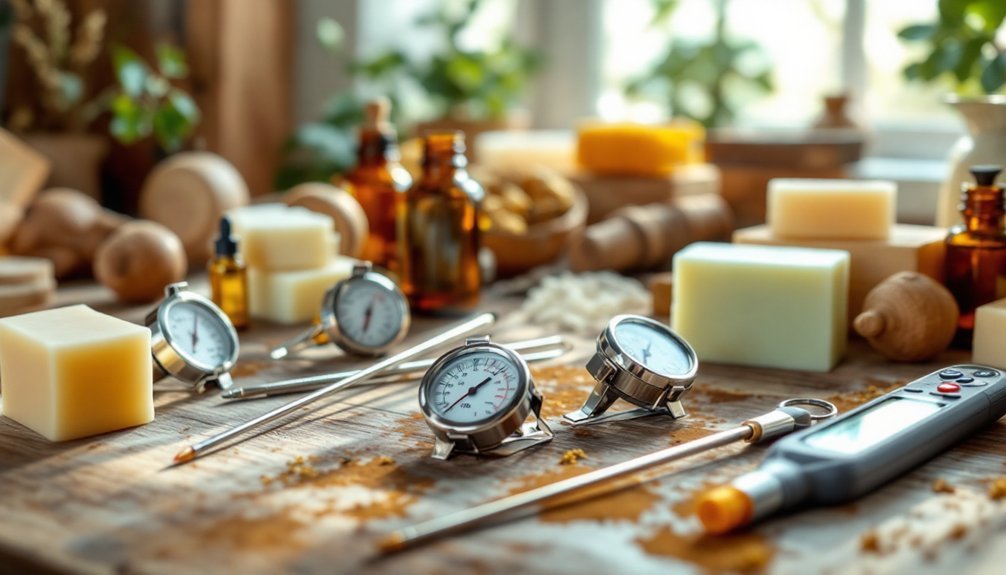
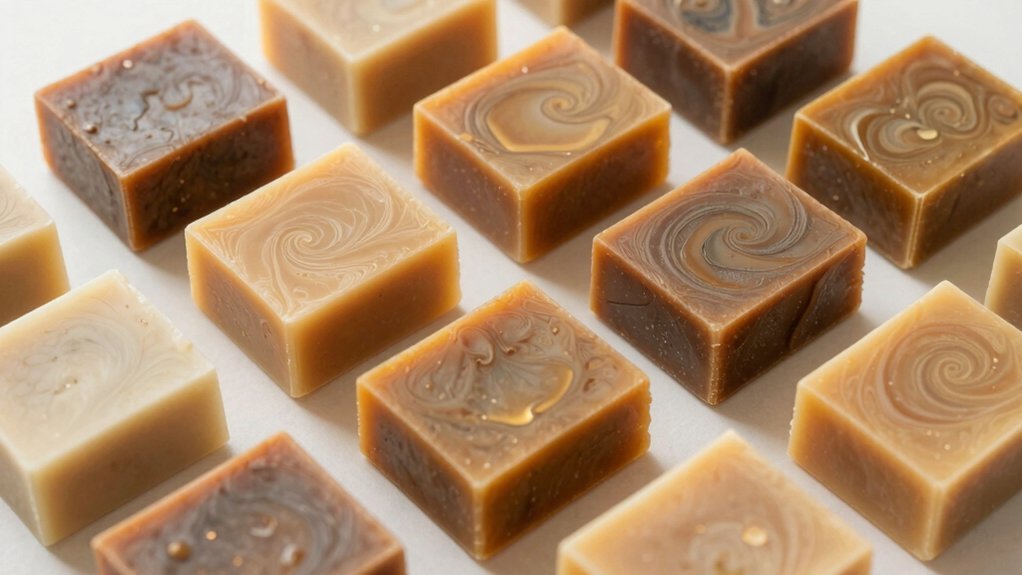
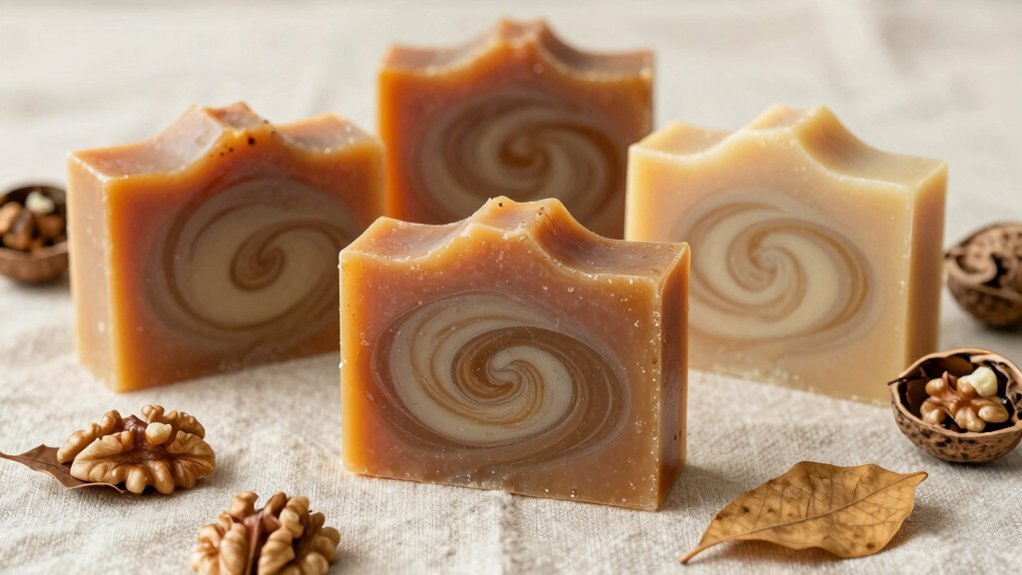
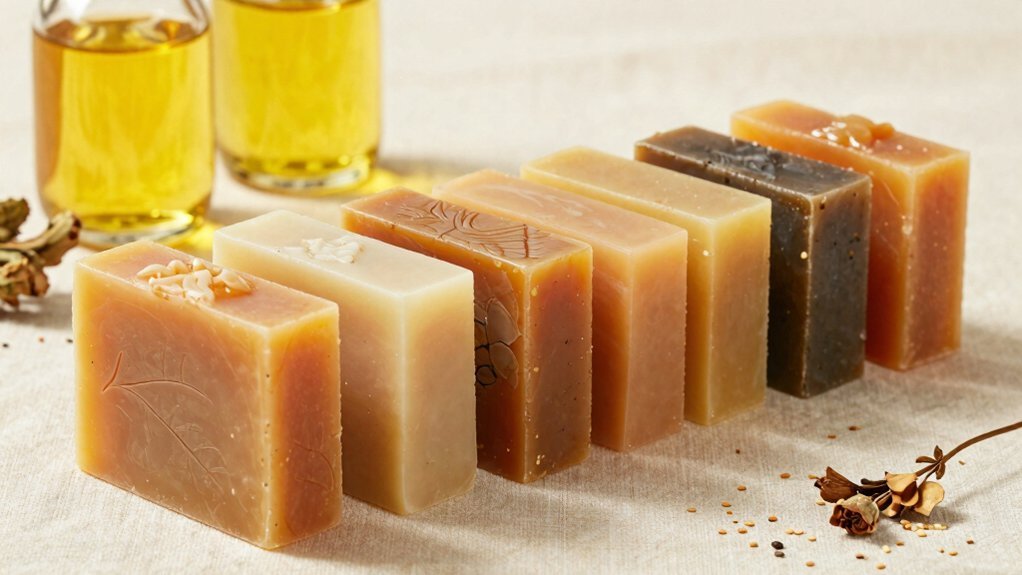
Leave a Reply